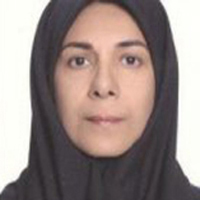Cloud computing adoption factors for digital transformation in Iran's software industry
Due to the innovations in the IT industry in recent years, the dependence on cloud computing technology has increased. Cloud computing has grown significantly in recent years and its adoption is a current infrastructure challenge for the software industry, as it creates a fundamental change in this industry. Despite the extensive benefits of cloud computing services, the adoption of these services by organizations remains limited and many software companies are hesitant to adopt this technology for various reasons. This study examines the factors affecting organizational decisions to adopt cloud computing using the technology-organization-environment framework.
This research utilizes a combination of methods, including the systematic literature review approach proposed by Kitchenham and Charters (2007), content analysis, and thematic analysis. A total of 26 articles published between 2014 and 2024 were selected. Supplementary data were collected through interviews with nine senior decision-makers specializing in software and cloud computing from leading Iranian software companies.
The results indicate that technological factors such as security, complexity, compatibility, and relative advantage; organizational factors including top management support, organizational size, and cost savings; and environmental factors such as competitive pressure, supportive policies, and external expertise are the most critical components influencing cloud computing adoption in Iran’s software industry. Balancing these factors is essential to accelerating digital transformation within organizations.
This study highlights the significance of addressing all technological, organizational, and environmental aspects by identifying and categorizing these factors. The findings suggest that organizations focusing on these elements can facilitate cloud computing adoption and achieve digital transformation. Special attention to supportive policies and infrastructure development can play a pivotal role in enhancing the productivity and competitiveness of Iran's software industry.
-
The Impact of Eliminating Tax-Exempt Interest Income from Time Deposits on the Real Estate Market, Exchange Rate, and Household Welfare Approach: Financial Computable General Equilibrium (FCGE)
Yeganeh Mosavi Jahromi *, Farhad Khodadad Kashi, Sakineh Tarighi Sarkhab
Journal of Program and Development Research, -
A Comparative Study of Insurance Penetration and Factors Affecting it in Developed and Developing Countries
Samira Motaghi*, Yegane Mosavi Jahromi, Mohammadamin Taheri Gorgani
Journal of Economic Modeling Research,



